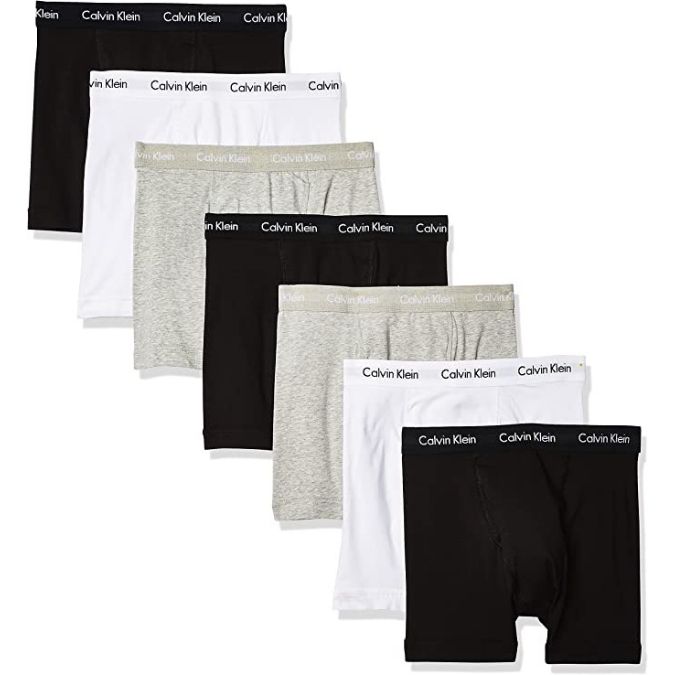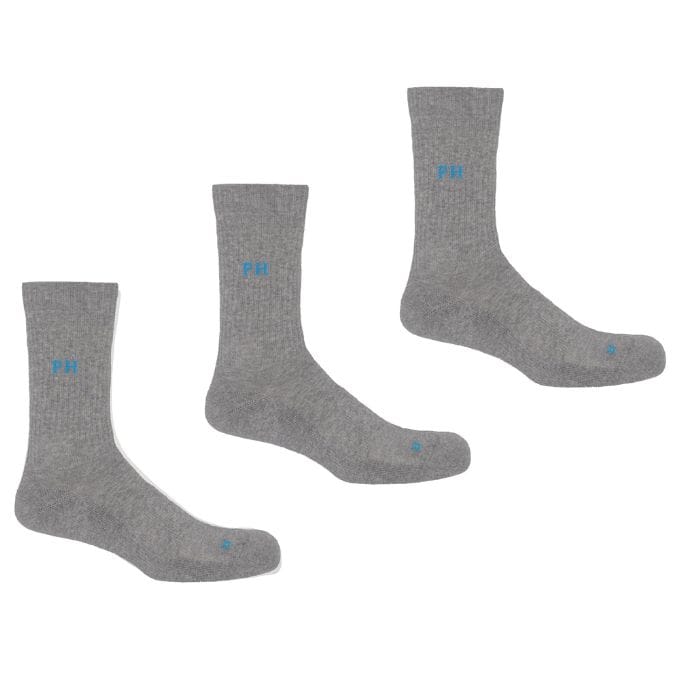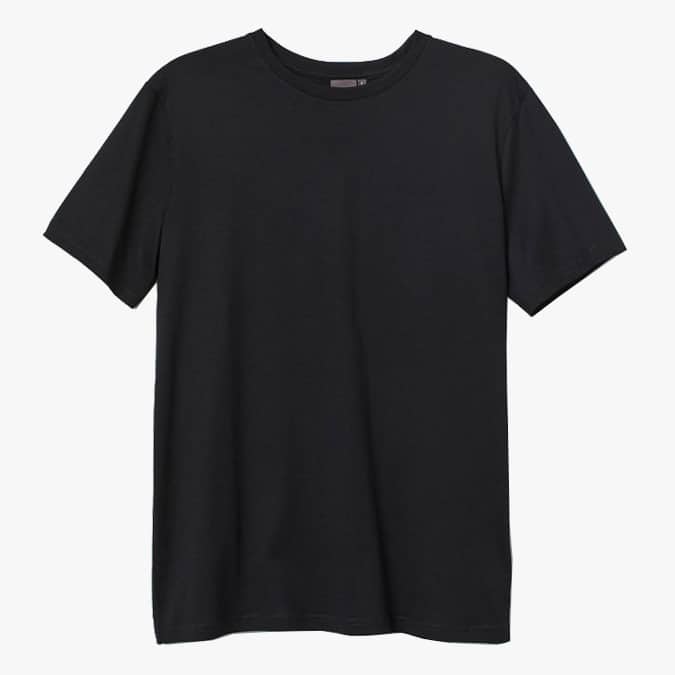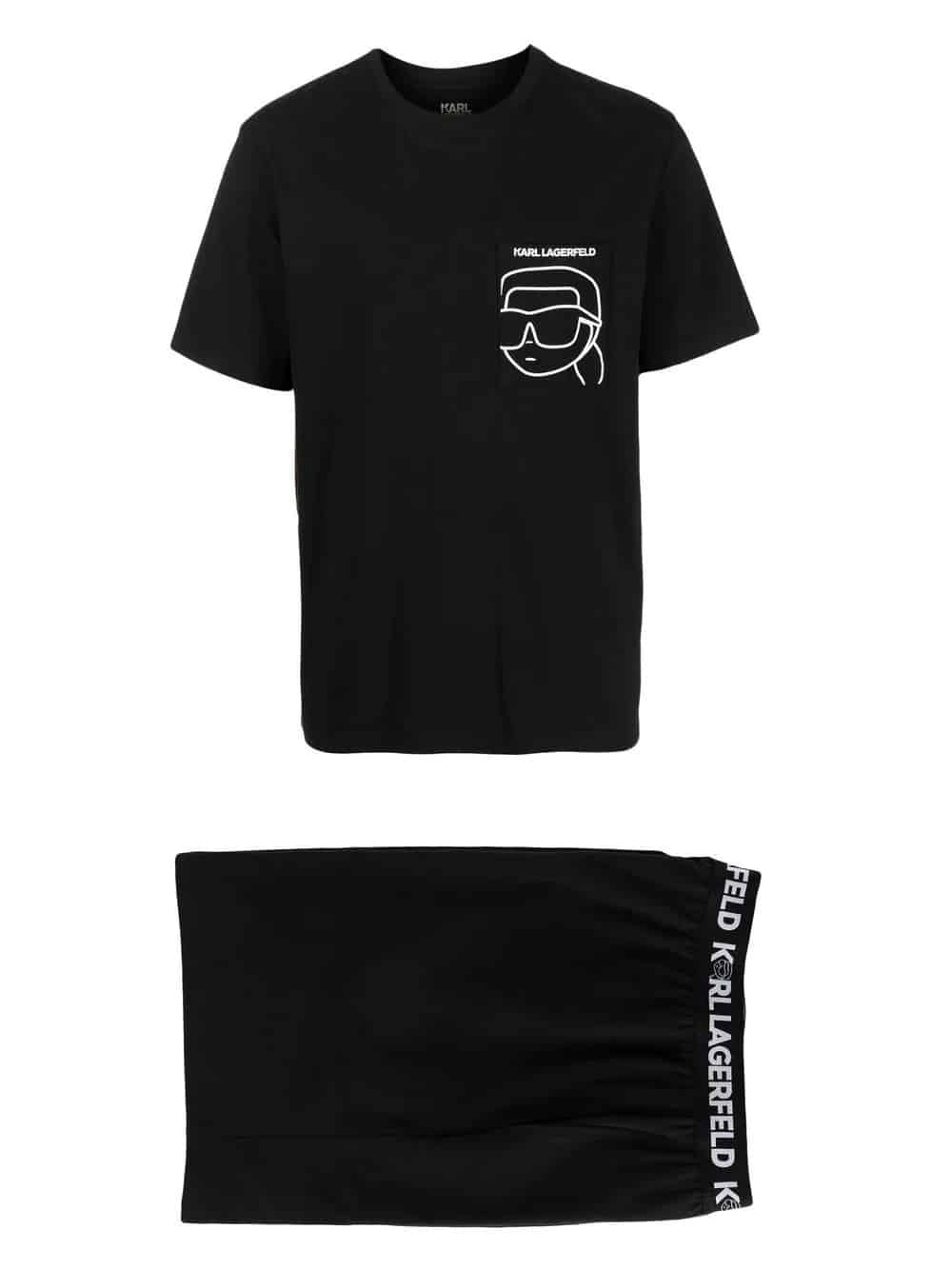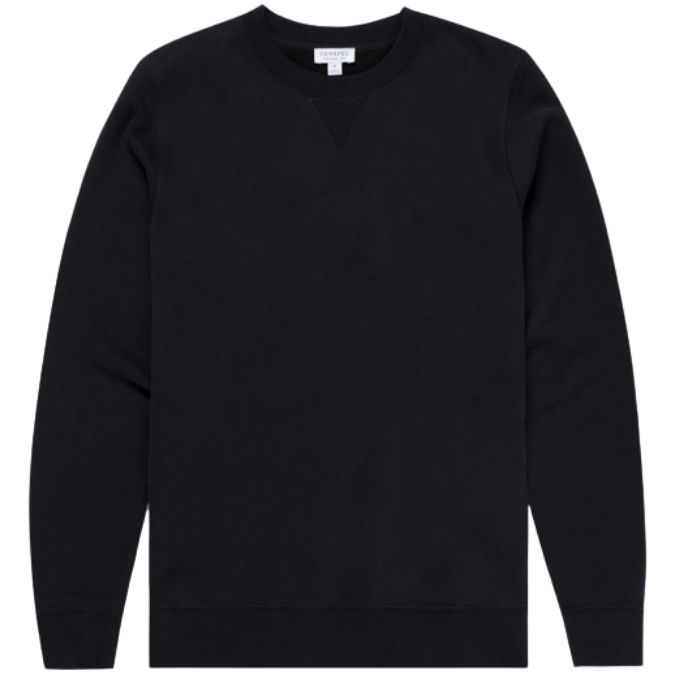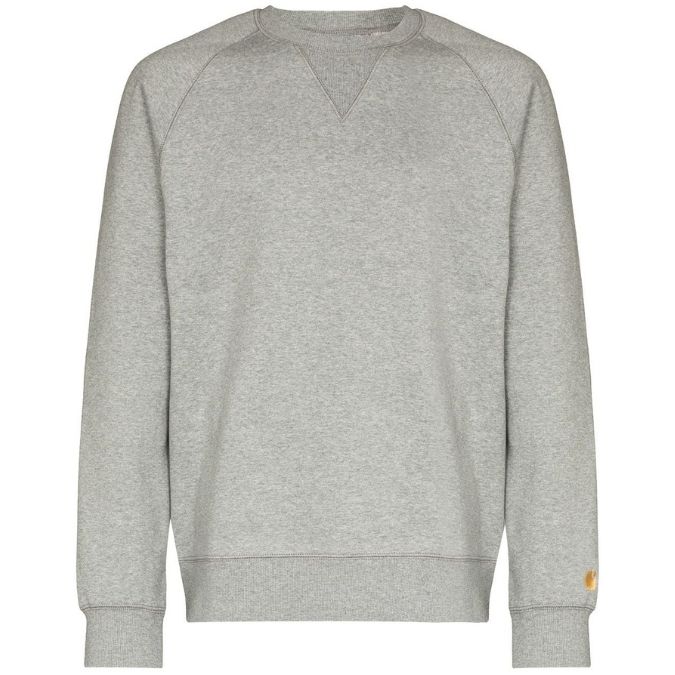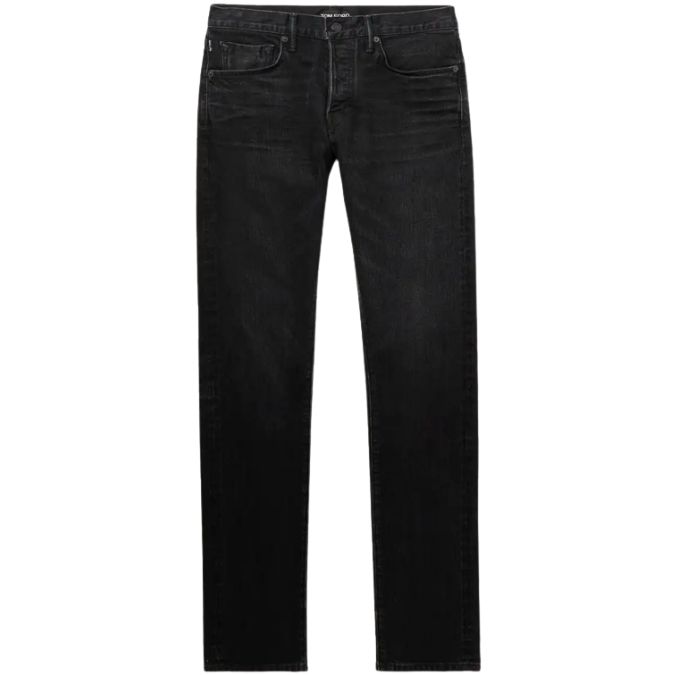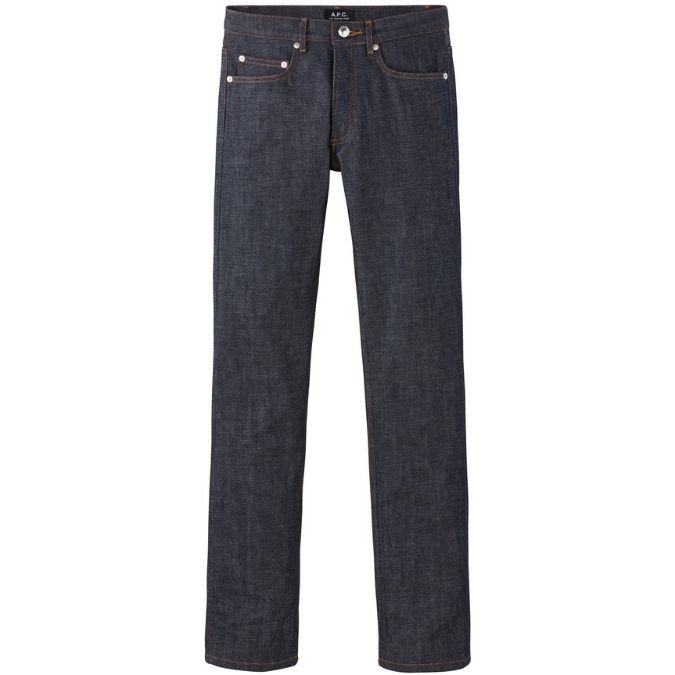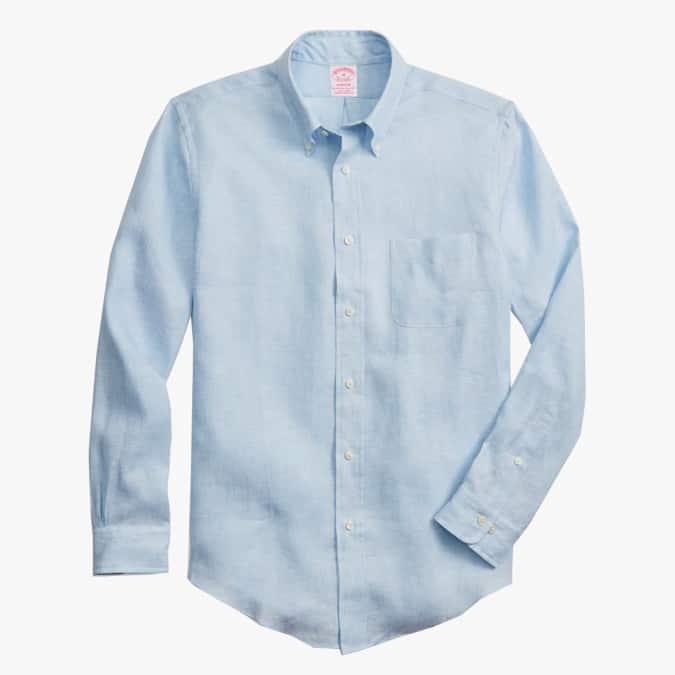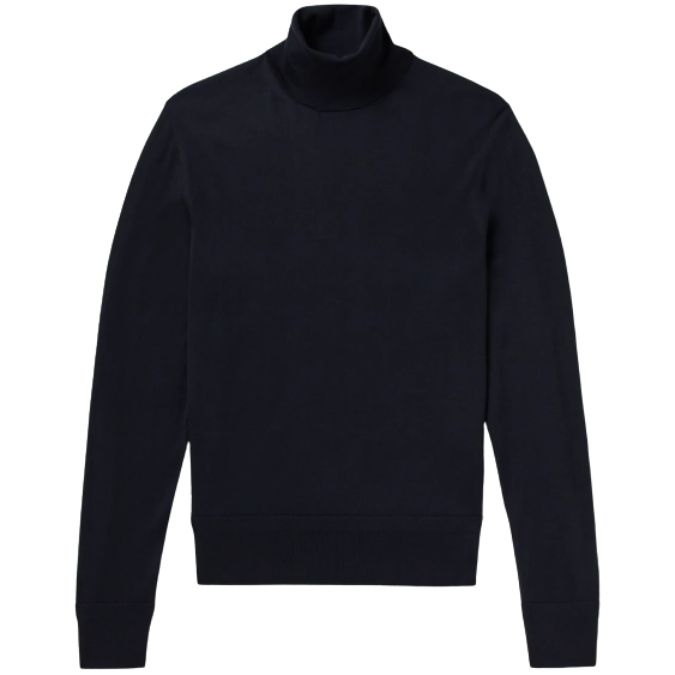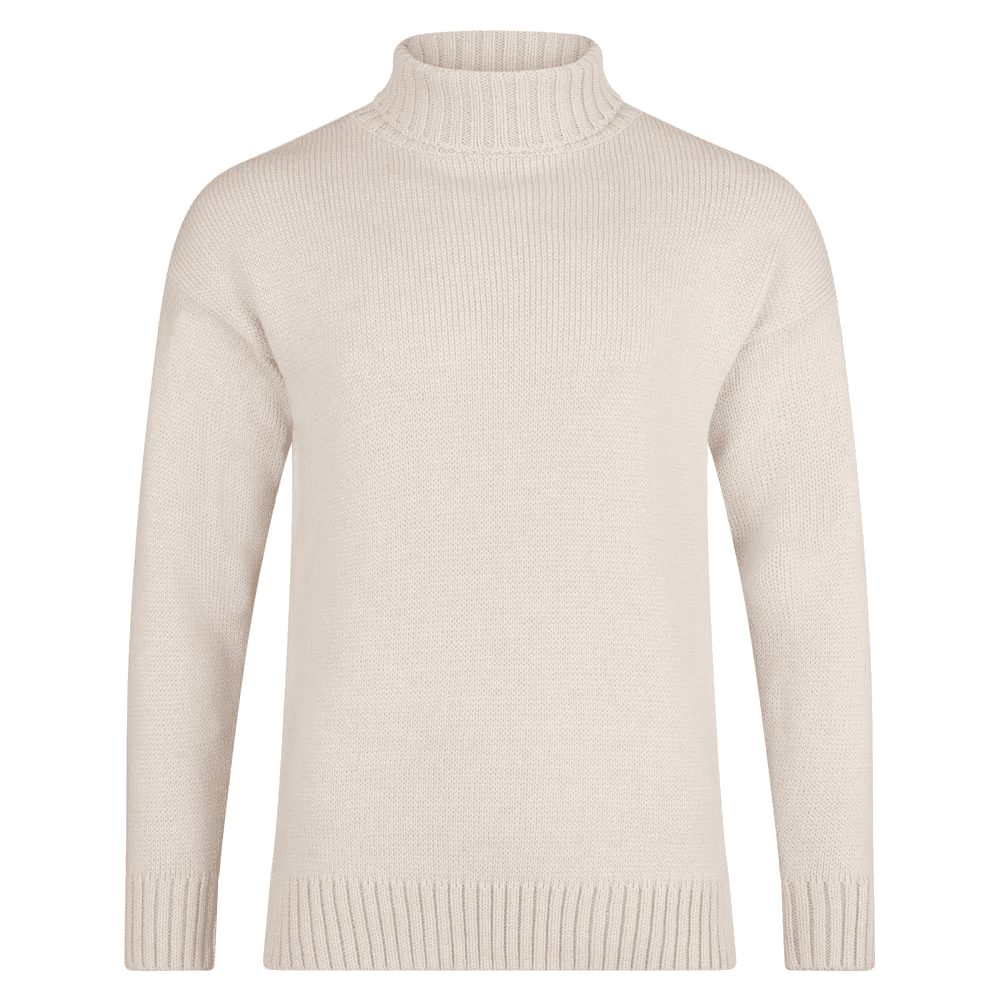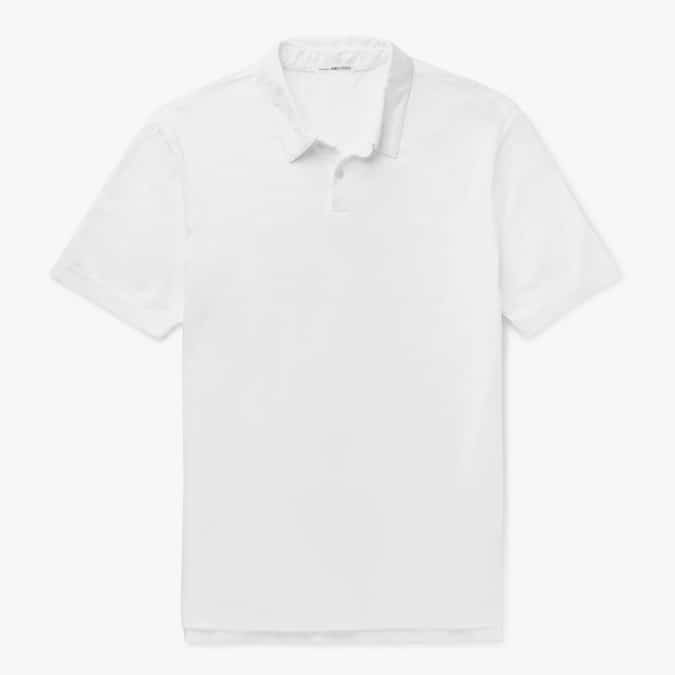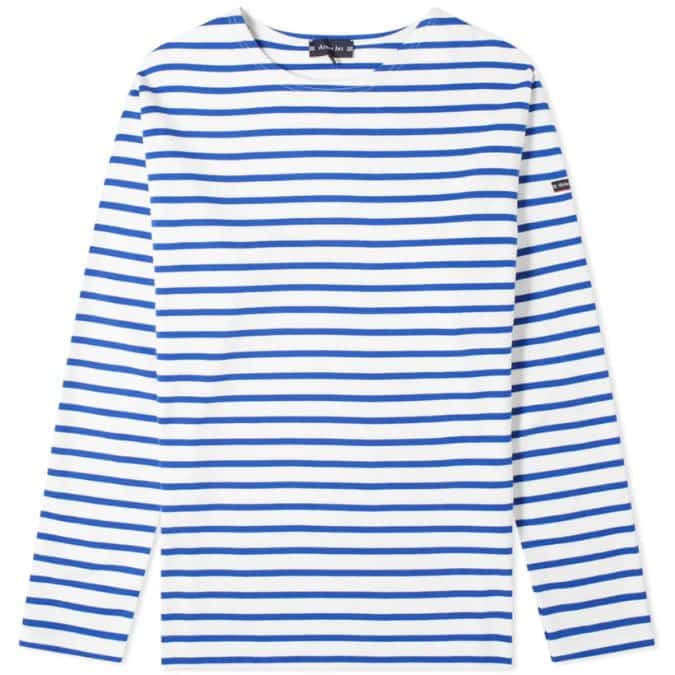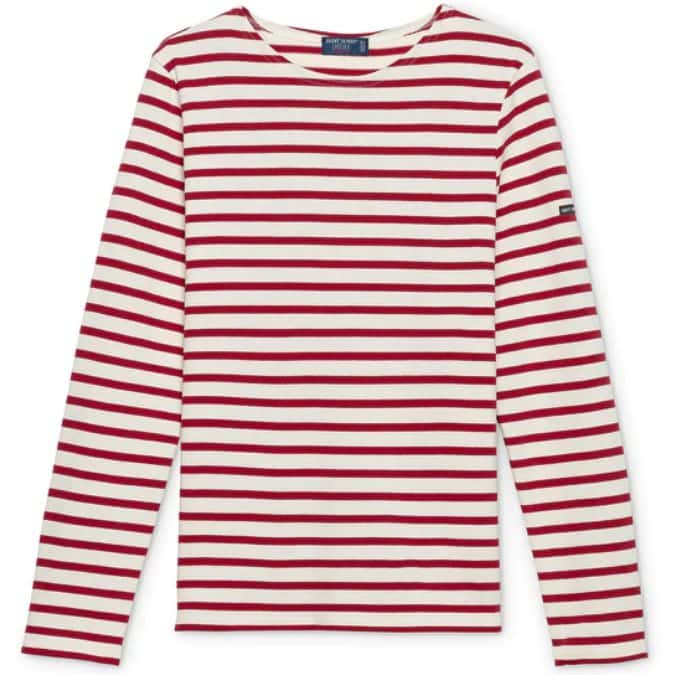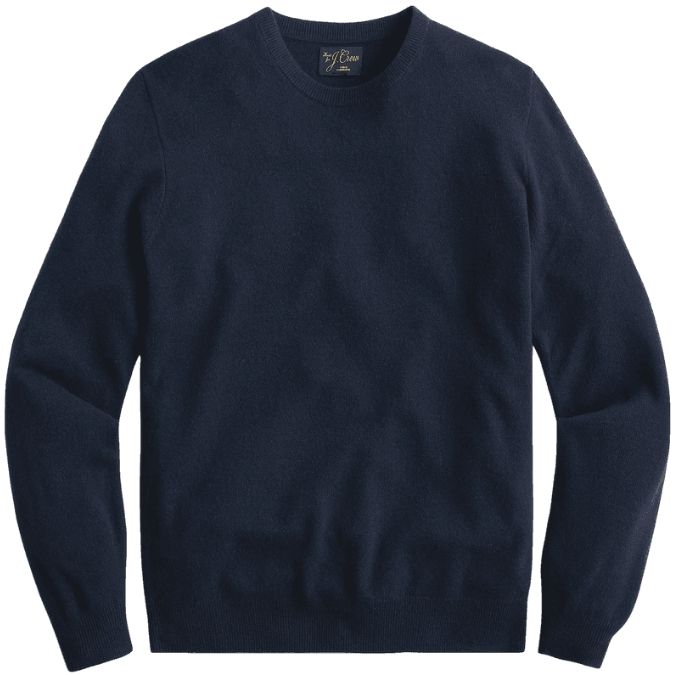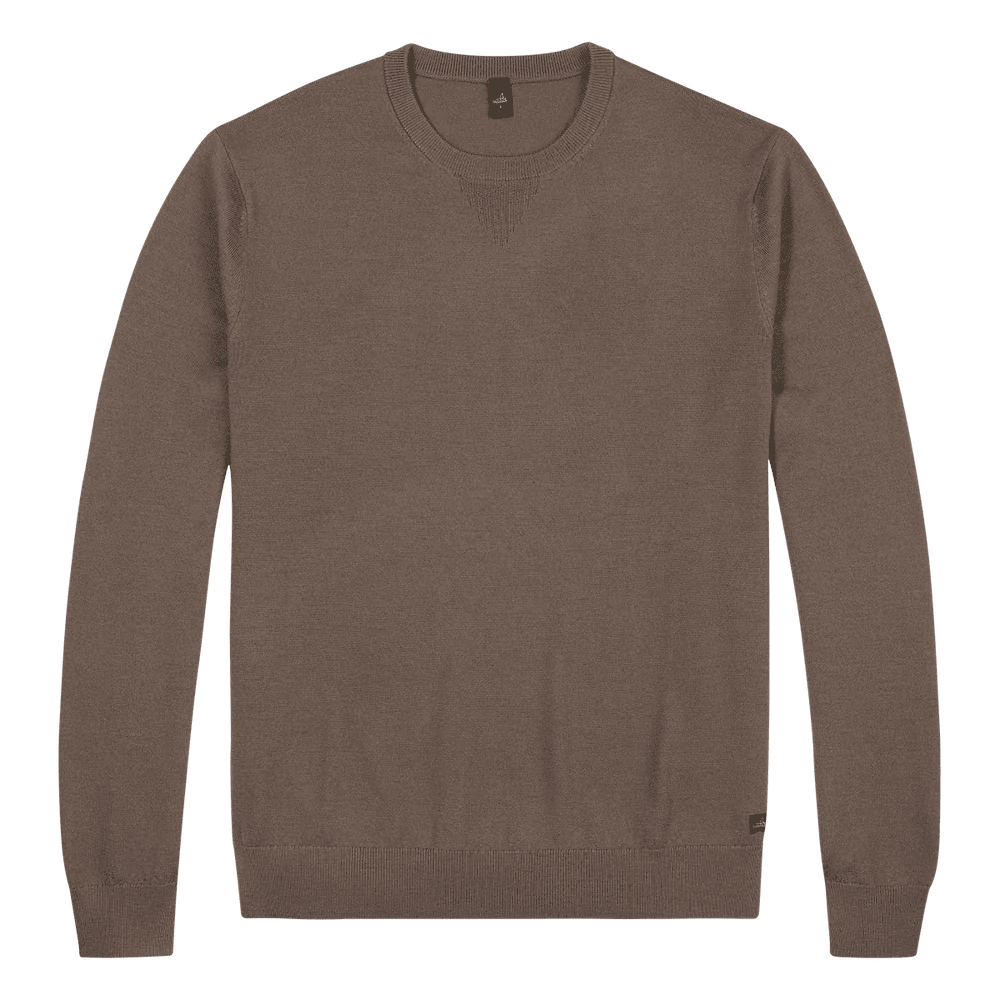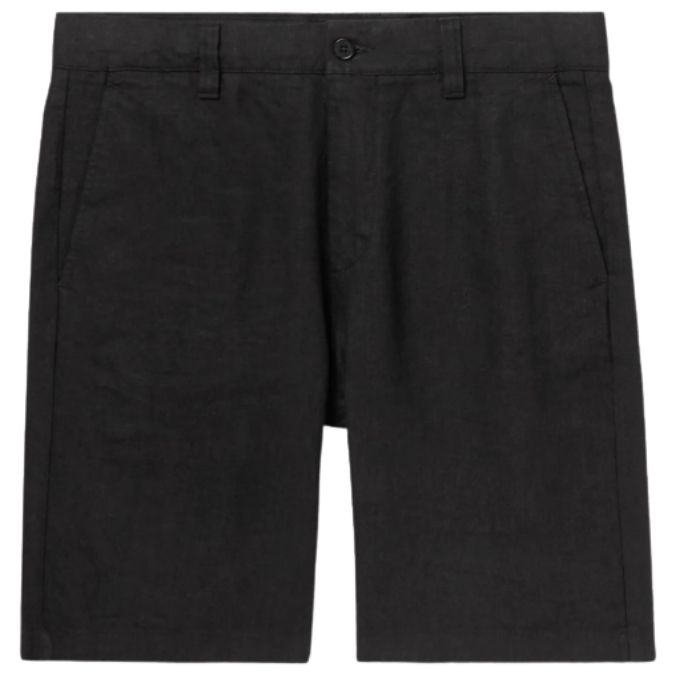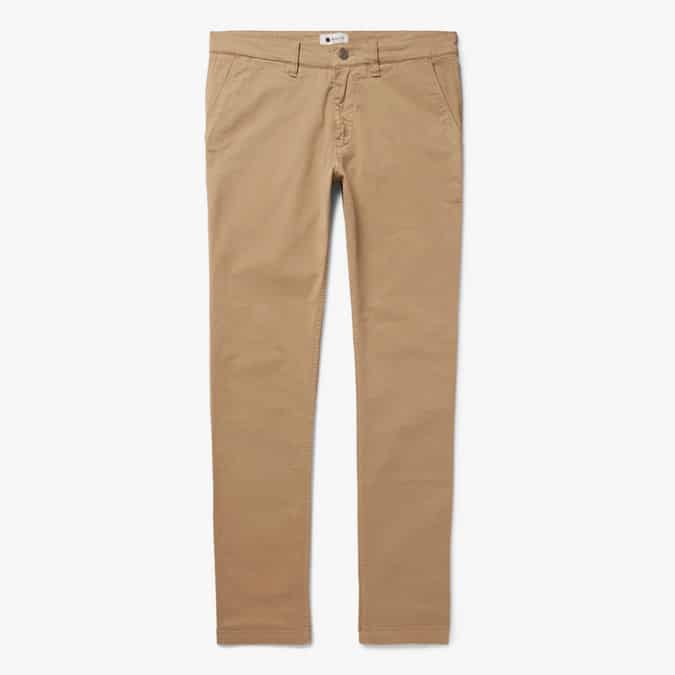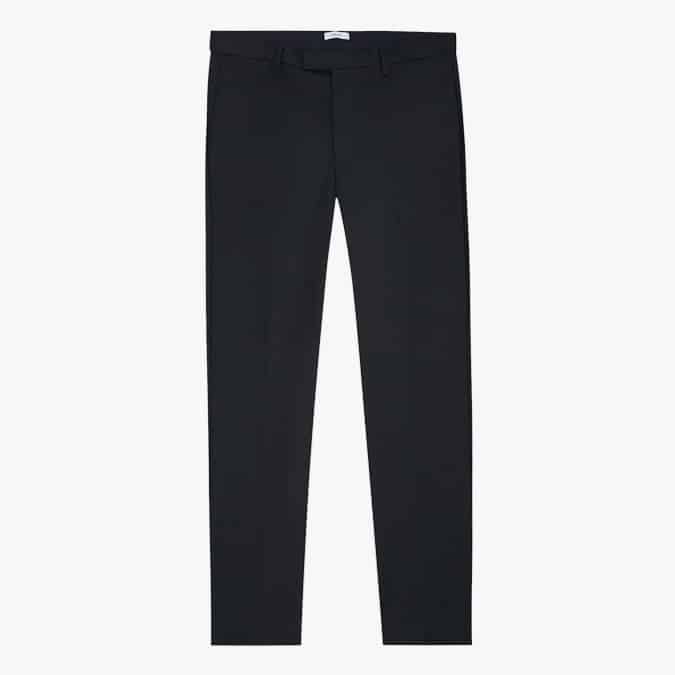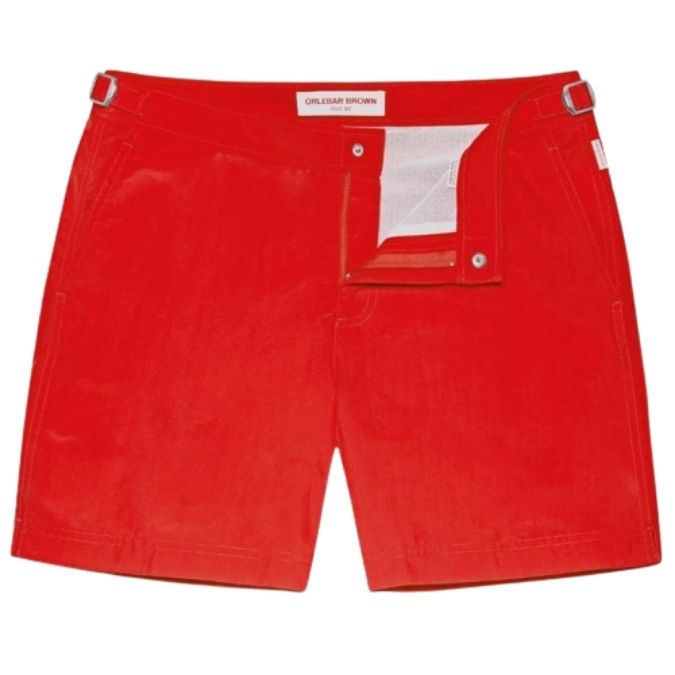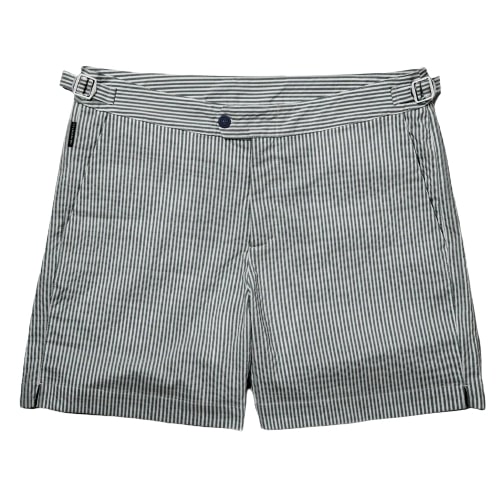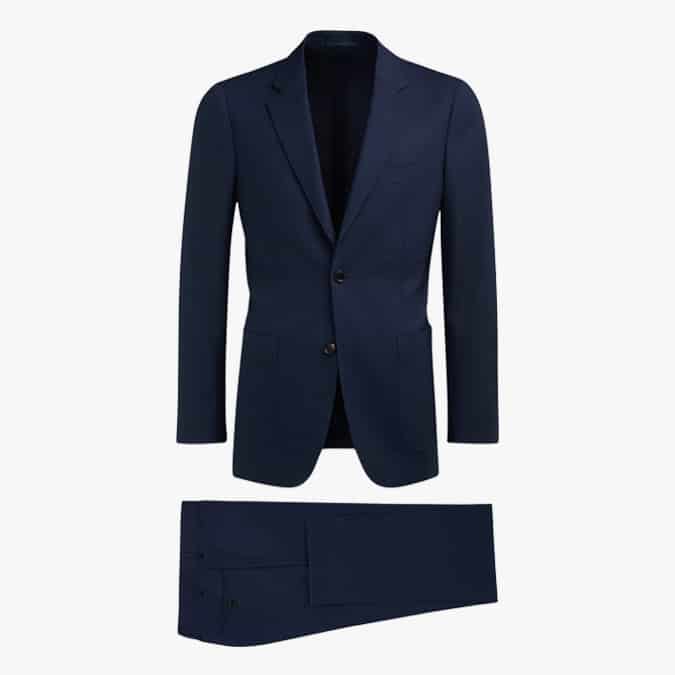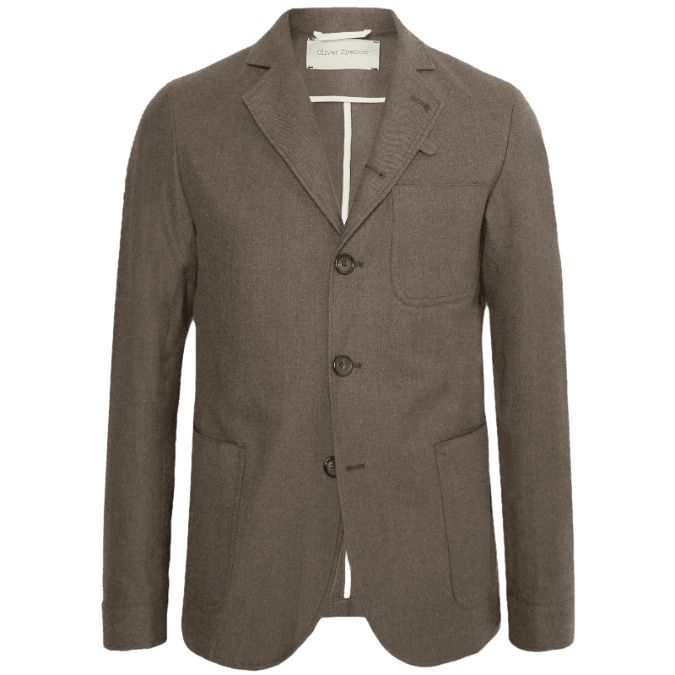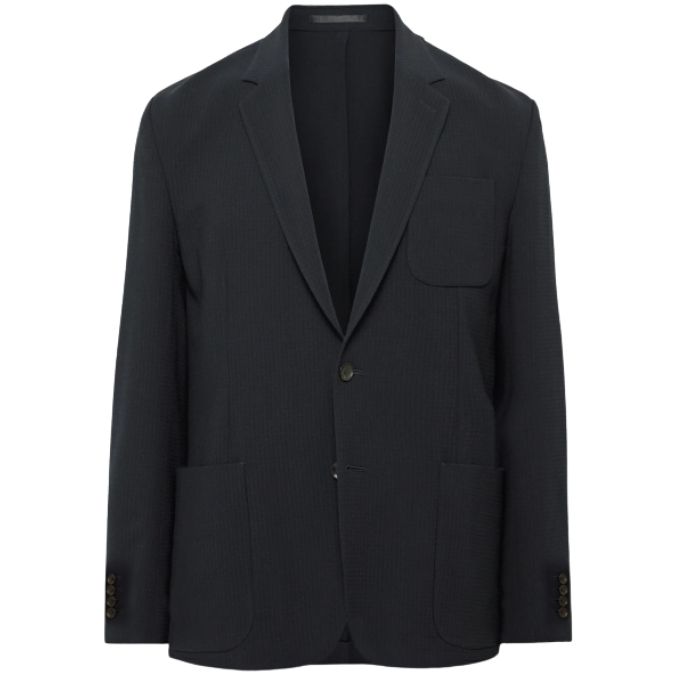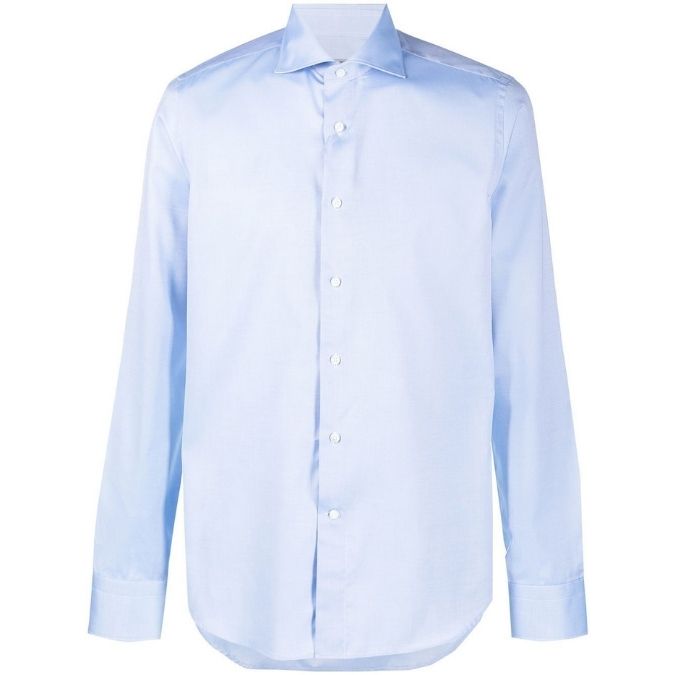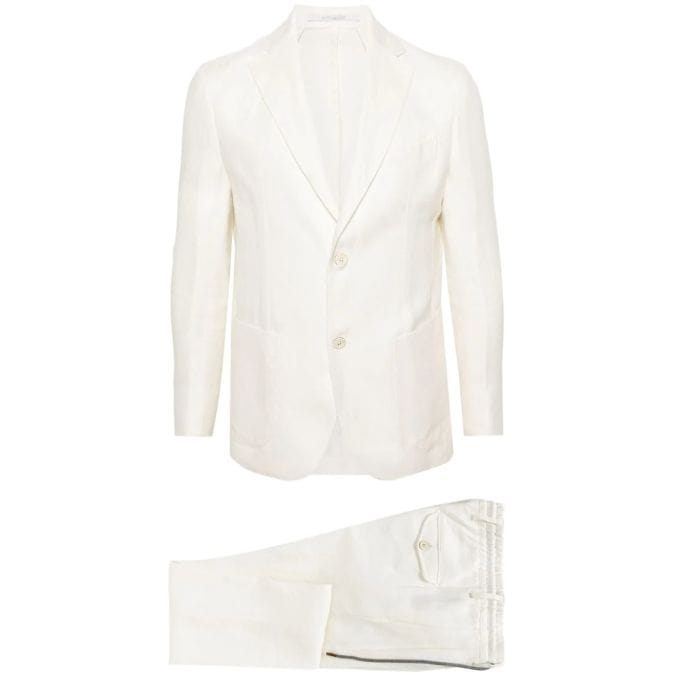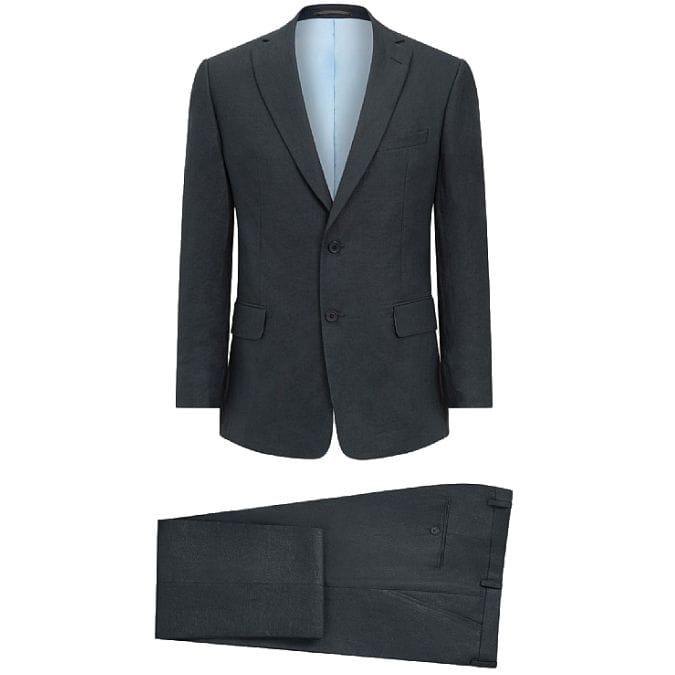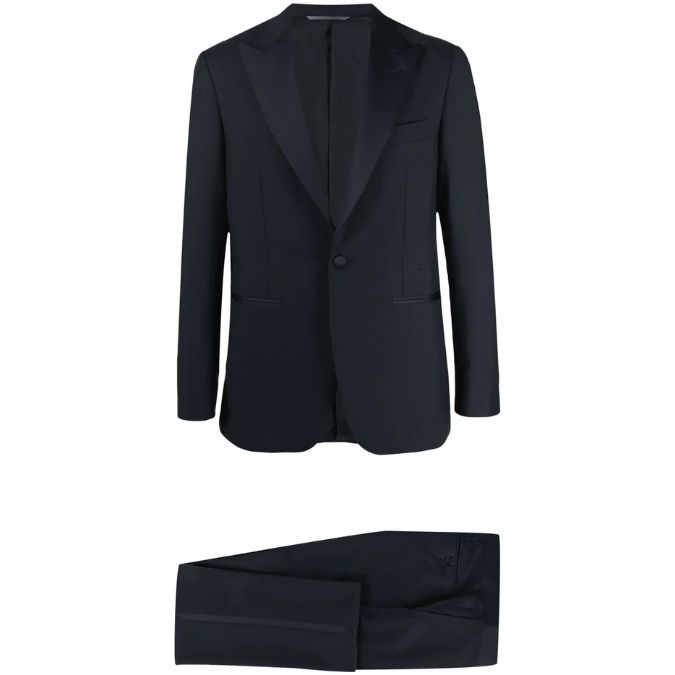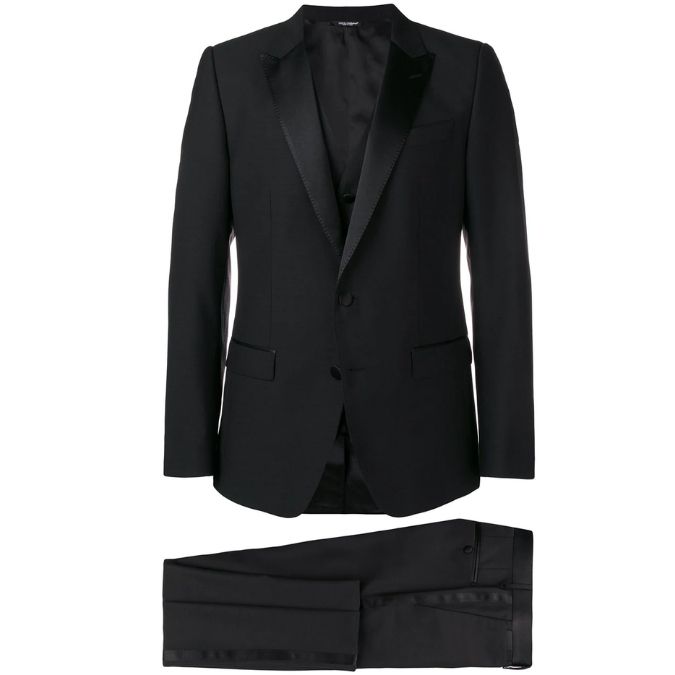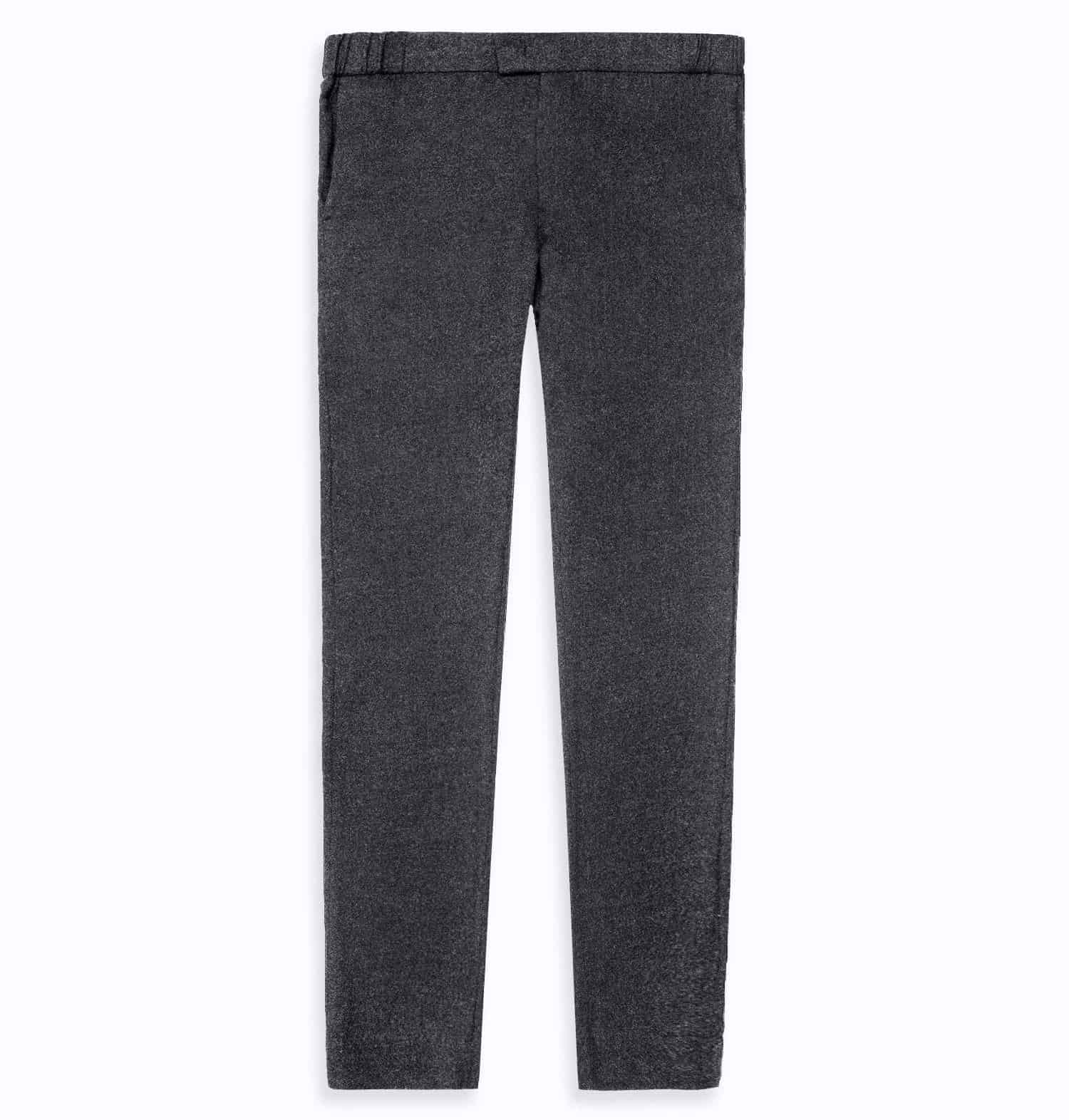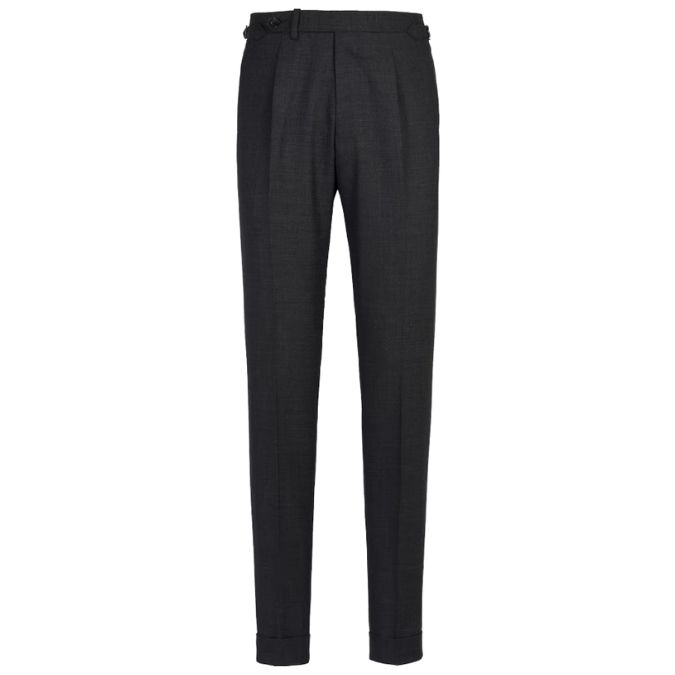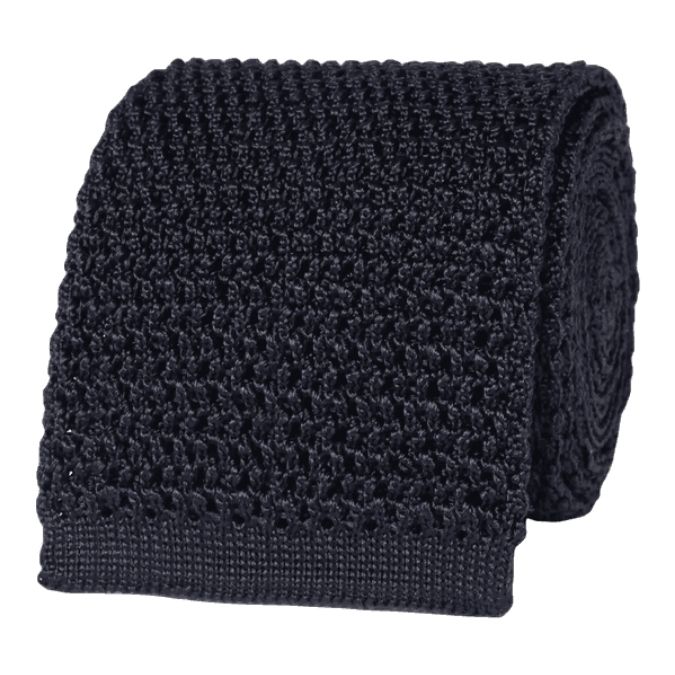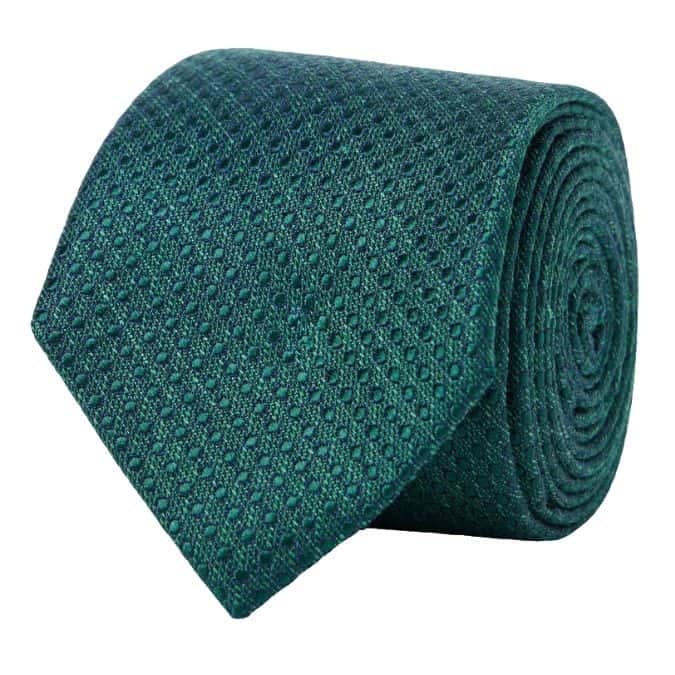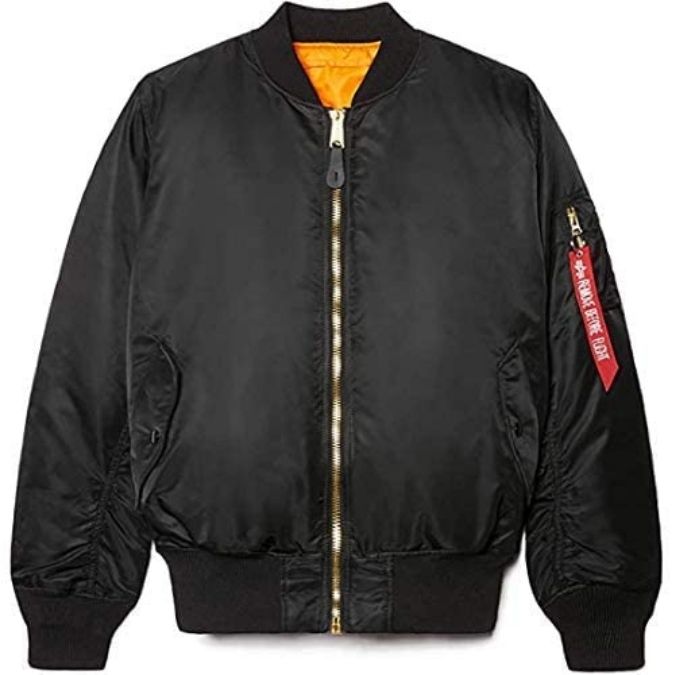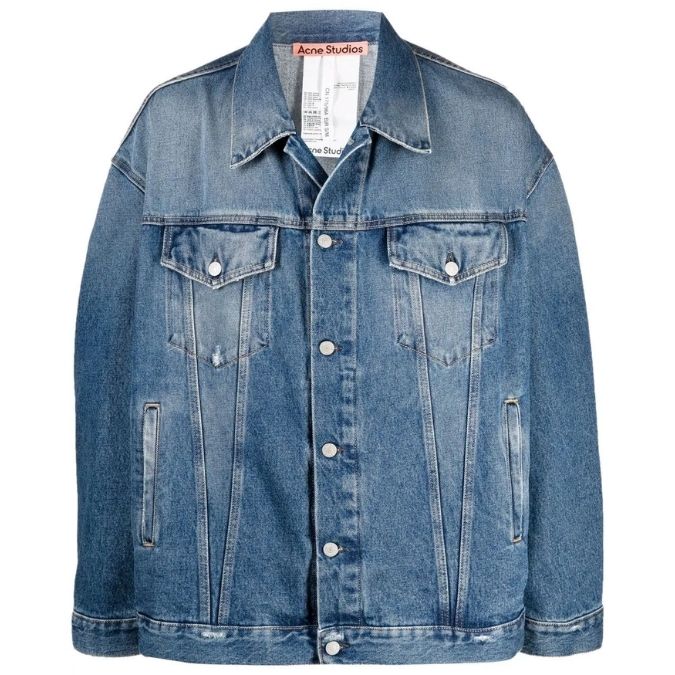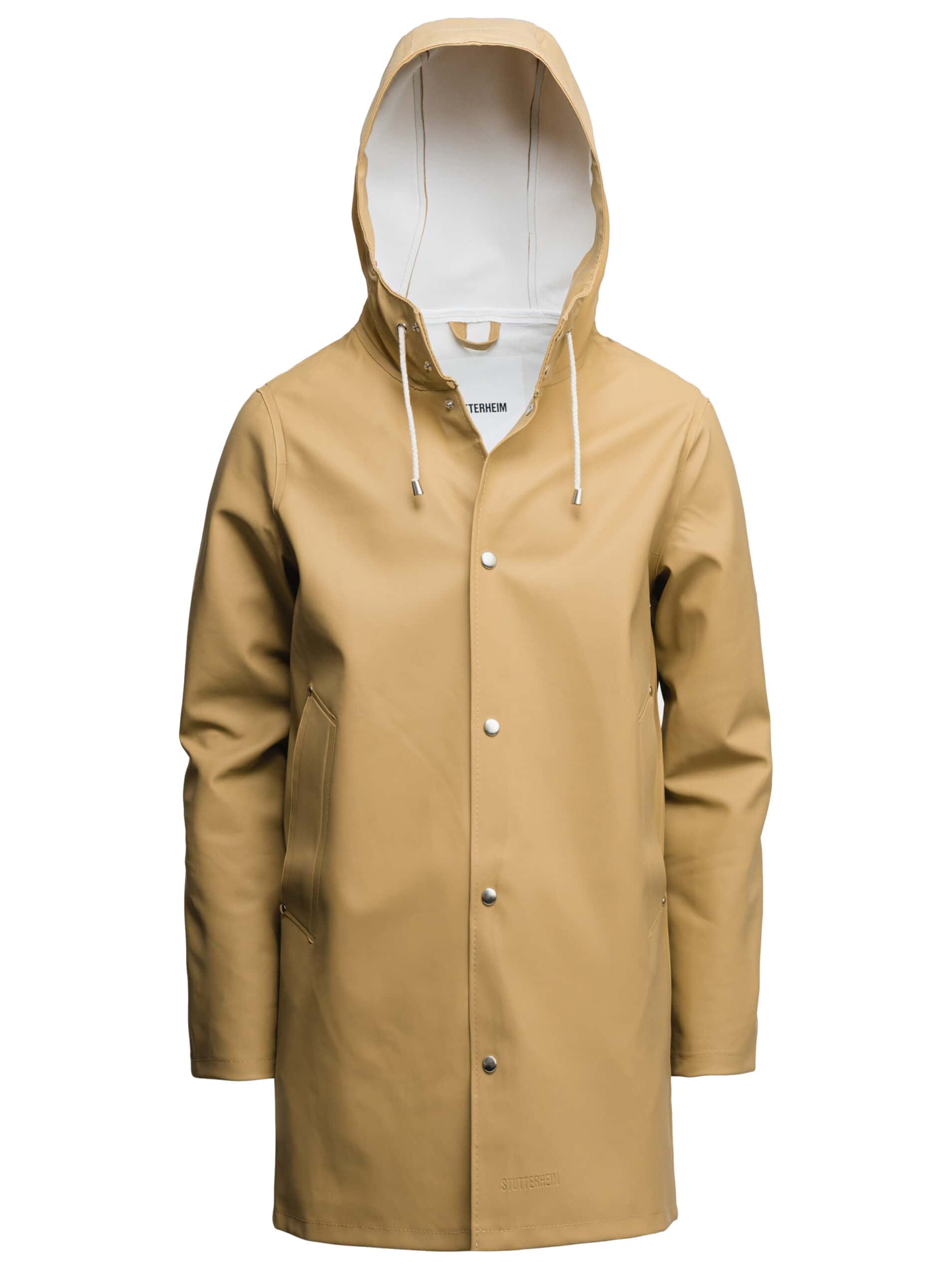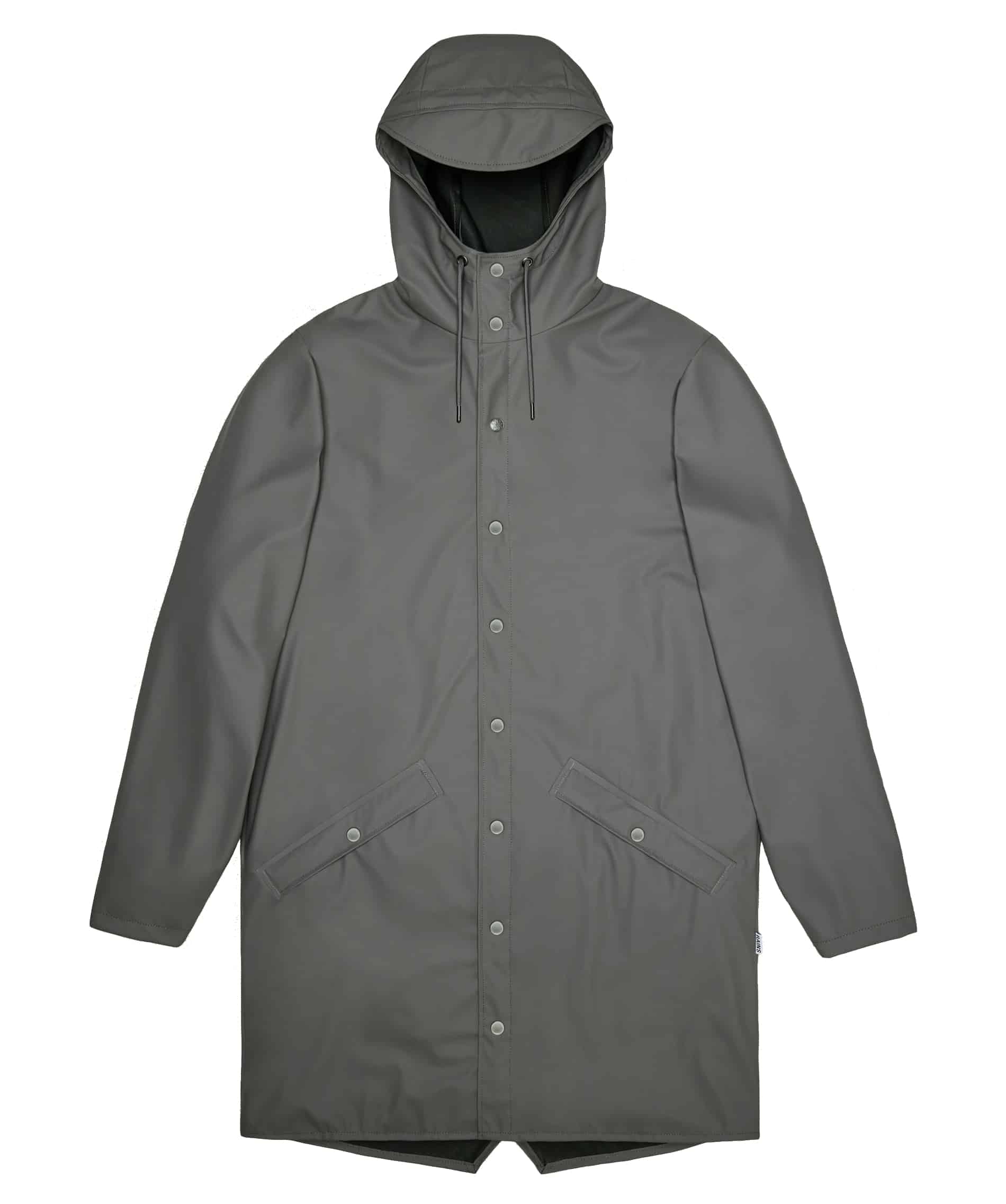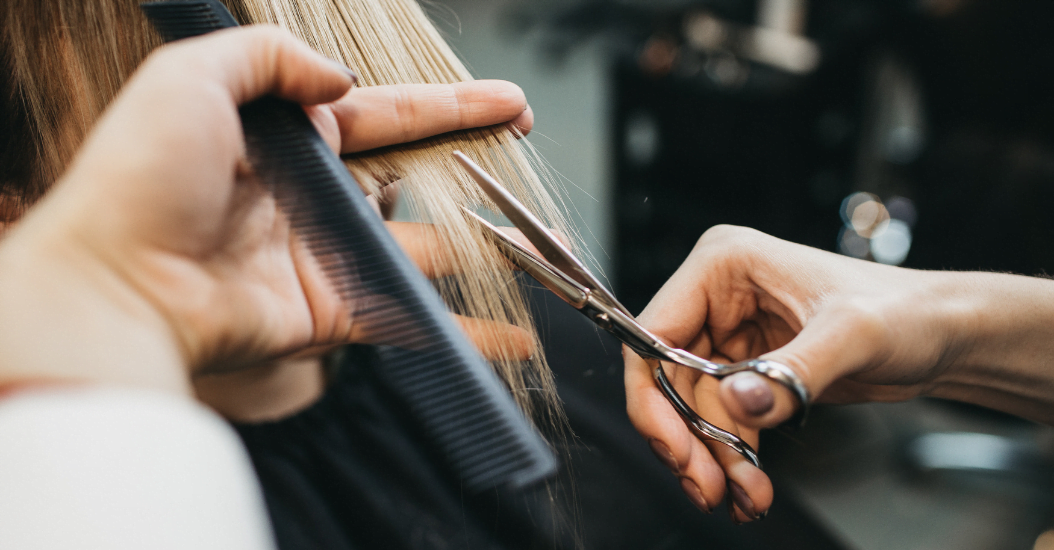All the best things come in capsules. Medicine. Space food. Time. And, naturally, clothes. Not in a download-your-outfit-from-the-internet way, the minimalist wardrobe is far simpler than that. It’s the answer to every instance when you looked at your wardrobe and wondered, “What shall I wear today?”
Ostensibly invented by boutique owner Susie Faux in the 1970s, it’s really an idea as old as getting dressed – a small, curated collection of clothes that all work together, in almost any combination, that covers every conceivable base. It’s timeless, trans-seasonal, immune to the vagaries of trends and fashions, but also a great base to which you can odd the side-stripe jogger or embellished jacket, should you so wish.
It is, in short, style made simple. Here’s what you’ll need.
The Hallmarks Of A Minimalist Wardrobe
Before gathering pieces for a men’s minimalist wardrobe, you’ll want to consider these fundamentals.
Versatility
A men’s capsule wardrobe is concise. There is no fat. Which means everything has to do (at least) double-duty. A blazer that looks as good with jeans as it does with chinos is better than one that only dresses up. Unless a new purchase works in at least three outfits, move on.
Neutrality
There is a time and a place for neon, and in a minimalist wardrobe, it is not. Pick a palette and stick to it. Unless you’re an advanced colour theorist, that means relying on a backbone of neutrals – navys, greys, browns, drabs, blacks – that all go together.
Appropriateness
Clothes are only as valuable as how much you wear them. You could have a wardrobe crafted entirely on Savile Row, but if you work as a personal trainer, those suits won’t get much airing. Think instead in pieces that transition from week to weekend and that work for downtime as well as nights out.
Quality
The beauty of a minimal capsul wardrobe is how little it contains. But that means the clothes you do buy need to be built to last. Partly, that’s practicality – you’ll be wearing the same things a lot and replacing them frequently is boring. But also, simple clothes have no bedazzling to mask how they’re made. If they’re crappy, you’ll look it.
How to Start a Minimalist Wardrobe for Men
There’s no doubt that it can be super intimidating to overhaul your entire wardrobe and start from scratch, but if you want to have a truly minimalist closet, that’s what it takes.
We’re not saying to throw out all your clothes and go buy an entire collection of black and whites, but rather, take the time to asses what you have, de-clutter your closet, and learn to work with what you already own. From there, you can add in a few new pieces to bring the whole show together.
Here are some tips for how to start a minimalist capsul wardrobe , or how to plan one (with as little stress as possible) if this is something you’re considering.
Step 1: Consider Your Personal Style
Before you can even begin building a minimalist wardrobe, you’ll have to plan out your unique style route. What pieces do you find yourself reaching for again and again? What are some staples in your closet already? Are there any items that you simply can’t live without?
Once you identify these mainstays, you can start to think of your personal style as a whole. Do you gravitate towards solid colors or prints? What colors are you attracted to? Gym clothes or suits? What do you feel the most confident in? It’s also worth thinking about your daily needs and what kind of dress code your job and social life demand.
Answering these questions will help you identify your personal style even further, so that when it comes time to sort through what you already own (or purchase new pieces), you’ll have some guidance as to what should stay and what’s a big no go.
Step 2: Empty Your Closet
This goes for drawers, random hall closets, and those boxes under your bed that you haven’t touched in a few years. Take some time to dump out all your clothes (we’re talking everything) to take inventory, and see what you’re working with.
Then, begin to sort items into different piles like “Keep,” “Toss” and “Maybe”.
Your Keep pile should have everything you plan on leaving in your minimalist closet that suits your personal style, plus any of your favorite pieces. It’s no use hanging on to things that you might wear, as this defeats the purpose of a minimalist wardrobe. Only keep items that genuinely fit the brand you’re trying to build for yourself, or that “spark joy” in Marie Kondo terms.
Your Toss pile should have everything that doesn’t make the cut for your minimalist wardrobe. These are the obvious items you should get rid of, but also anything that you haven’t worn in the last year. If you don’t find yourself reaching for it regularly, and if it doesn’t fit your personal style, it belongs in the Toss pile.
But what about all those items that you just aren’t sure about? That sweatshirt you’re torn up over getting rid of, or your old sneakers that give you separation anxiety? These all belong in the Maybe pile, to sort through later.
What you should be left with are key pieces that you’ll actually wear and that suit your personal style, rather than a closet full of clutter.
Step 3: Get to Know Your New Closet
Once you’ve cleaned out your closet, it’s time to get reacquainted with it. Introduce yourself to what’s left and get familiar with pairing items so you’ll know what to reach for when it comes time to put together an outfit.
This will also give you the chance to identify any gaps in your wardrobe so that you can fill them with updated clothes. If you’re curious about what pieces of clothing should be in a man’s minimalist wardrobe, the rest of the article covers the essentials.
The Basic Items of a Capsule Wardrobe
The stuff next to your skin is often ignored, but it’s important to get right. Sure, no one else knows you’re wearing nice pants, but you will. You’ll wear these items with everything, so keep the styling simple and look for natural fabrics – they’ll breathe, absorb sweat and just make life much better.
1. Underwear And Socks
Avoid novelty and stick to the basics – quality cotton, dark colours, good fits. Tom Ford bins his underwear every six months, and while we’re loathe to advise being quite that ruthless when there’s a planet to worry about, you should at least be replacing stuff at the first hint of holes, sagging or snapped elastic.
2. T-Shirts
T-shirts proliferate like mushrooms, which just means you end up wearing tees you don’t like because they’re clean. So be more discerning. Since logos date and slogans are always awful, stick to block colours or classic patterns, like Breton stripes. Start with a few white, a few black, then add your accents.
3. Loungewear
Do you need pajamas? Arguably not. But when you’ve only got a handful of clothes in your wardrobe, sleeping in a T-shirt and lounge shorts means there’s one less in your rotation. Plus, as the recent pyjama-shirt trend proved, there’s a chance your loungewear (ideally in breathable cotton or linen) could, occasionally, be upgraded to daywear. So steer clear of anything from the Disney Store.
4. Sweatshirt
And not one you wear to the gym. Swerve sweatshirts covered in brash logos and opt for navy and black before more athletic grey marl versions. That way, you’ll have something that looks good with chinos, à la JFK, or joggers, for when you’re feeling more Ye.
Minimalist Casualwear
In a capsule wardrobe, the lines between dressed-up and -down are blurred. These are clothes that work at a barbecue, but which should also be able to hold their own when you’re eating food a professional has cooked for you indoors.
Jeans
Think dark, slim and simple. Your pair of jeans (ideally cut from selvedge denim) should be sharp enough for dinner but not so fancy that you freak out if you get ketchup on them. Avoid fades you’ve not made yourself and, when rips do eventually appear, buy a new smart pair and save the old ones for rough and ready workwear looks.
Oxford Shirts
When it comes to shirts , it’s a case of the simpler, the better – block colours, ideally neutral. Fit is arguably more important than shade. These are your off-duty shirts, so they should be slim enough to sit under a jacket but not figure-hugging. You’ll want enough room to leave them unbuttoned over a T-shirt.
Chambray Shirt
One chambray shirt is enough. Depending on how rugged your wardrobe leans, you can pick from so-heavy-it’s-basically-denim up to something that’s indistinguishable from a blue Oxford. If in doubt, chart the middle course – denimy enough to look different, not so denimy that you look like a cowboy when you wear it with jeans.
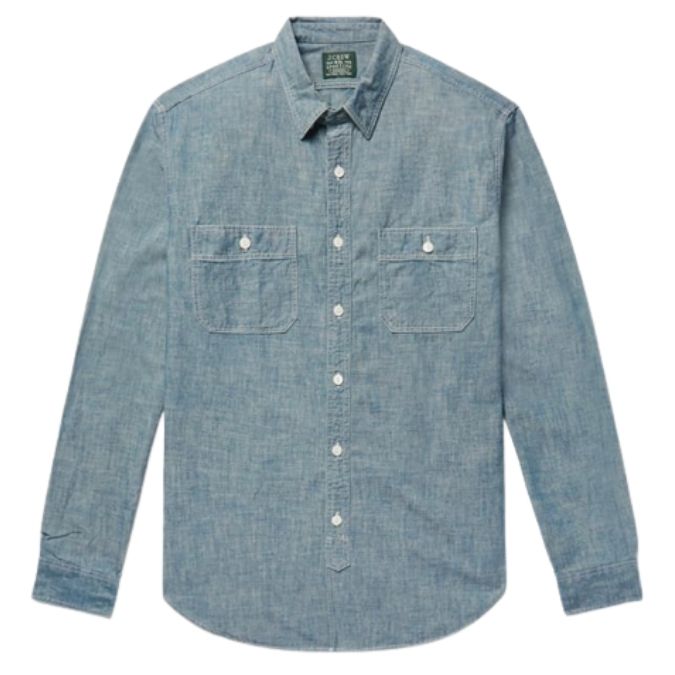

Wool Roll Neck
Minimalist wardrobes don’t offer much room for impact clothes, so a roll neck is a godsend. Even though they’re absurdly flattering, they’re still comparatively uncommon, which means wearing one under a jacket (or, power move, a shirt) immediately puts you among the best-dressed men in any room. If you buy one, make it black. If you buy a second, try a jewel tone, like emerald.
Polo Shirts
In that smart-casual space between shirts and tees, the polo is a true wardrobe workhorse. Start with neutrals and they’ll dress down a blazer as well as smarten up jeans, especially if you have a long-sleeved option, which always feels that bit more thought-through. Just make sure you nail the fit – baggy and spray-on are surefire outfit-killers.
Breton Top
The sailor’s favourite looks good on land, too. Go classic – thirteen stripes and long sleeves, ideally made by one of the OGs, like Armor-Lux – and you’ll have something that’s as easy to wear as a T-shirt, but feels like you’ve made that little bit more effort when you slot it under a blazer
Knitted Jumpers
One lightweight, for wearing underneath tailoring, and one that’s heavy enough for those truly freezing days. Between them, they’ll provide all the layering gradations you need to take you from snow-on-the-ground to slightly chilly commute. If you only have one of each, stick to neutrals. If you add more, try autumn leaf tones like burgundy or mustard.
Tailored Shorts
There’s a time and a place for basketball shorts, and your office isn’t it. Hemline trends change every season, but if you stick to tailored cut that ends an inch or two above the knee, they’ll never look dated. If you keep the colours muted, your boss won’t give you a second glance.
Chinos
You can get away with two pairs – slim, one in tan and one in navy – but if you add a third, make it a wide leg, perhaps with pleats . Sure, it’s a bit of a trend, but it’s one of those slow-moving ones that will look good for at least the next decade.
Swimwear
You will go on holiday at some point, and you should not be the guy wearing a) hot pink board shorts because that’s all the gift shop had left b) a Speedo, because it’s ‘European’. Invest in a tailored pair of swim shorts that, bar their fabric, are indistinguishable from your actual shorts, and you’ll have a pair that you can wear from pool to bar and back again.
Tailoring for a Capsule Wardrobe
How deep you invest depends on how sartorial your life is, but even if you “never wear a suit”, you will definitely have to wear a suit at some point. However much you spend on any piece of tailoring, keep some money aside for adjustments. They’re simple, but those fit tweaks will make anything you buy look three times as expensive.
Navy Suit
Buy a two-button navy suit, in a slim cut, and it will look good for as long as you can fit into it. You can wear the trousers anywhere you would chinos and, if you opt for a suit in a textured fabric such as hopsack with a shorter jacket hem, it can often work as a blazer.
Unstructured Blazer
‘Structure’ basically translates as padding. An unstructured blazer has all the stuffing ripped out, which makes it cooler – literally and figuratively – and more relaxed. Some can feel more like cardigans than tailored jackets, which means they’ll sit pretty over that Breton top, rather than just shirts with a collar.
Dress Shirts
This one comes down to your personal style and how often you suit all the way up. If it’s for the occasional wedding, then a couple of decent white shirts are probably plenty. If tailoring’s a once-a-week thing, add blue, pink and something more interesting, like a stripe. Just know that dress shirts don’t dress down well – they’re designed to be tucked, so tuck them.
Summer Suit
You could get around this by making sure your navy two-piece is lightweight enough that you won’t sweat through it at August nuptials. However, it’s far better to have a linen suit to hand in your closet for in your when the invites drop through the door, perhaps even in a more sun-friendly colour, like pale grey.
Dinner Suit
Less obligatory, but there are two rules of dinner suits: generally, if you rent one, you’ll look rubbish; if you buy one, you’ll always find a reason to wear it. You don’t need to spend a lot, just make sure it’s got the classic details – silky lapels and a stripe on the trousers – then you get your tailor to fix the cuffs, waist and trouser hems. Midnight blue will always trump black.
Grey Wool Trousers
Wear them with your blazer. Wear them with your suit jacket. Hell, they’ll even work with black tie, for something a bit Saint Laurent. If they’re slim and have next-to-no break, then you can dress them down, too, with a sweatshirt or even just a tee.
Ties
Think in texture, not pattern. You could stick to nothing but forest green ties , and if you’ve got a choice between (in order of formality) silk, linen and knitted, you’ll have an option for any occasion. If you do want to branch out, stick to colours that work with that navy suit and every colour of shirt in your wardrobe.
Minimalist Outerwear And Jackets
You should own at least one really good coat. Investing means that it’ll stand up to grim weather, but it will also turn even the most basic clothes into an actual outfit. Let what you’ll wear it with dictate whether you lean smart or casual, but make sure you have at least one option on the other side of the fence, too.
Overcoat
Time was, you’d only wear this with a suit. In today’s dressed-down world, however, overcoats look just as good over a hoodie and jeans. Since black can look a bit funereal, opt for navy (and hey, you can still wear it to funerals), then make sure it’s got enough space for layers. As for length, anything too long or short will date, whereas mid-thigh will look good forever.
Bomber Jacket
Once a trend, now a staple, the bomber jacket has joined the trench coat, chinos and T-shirts in the pantheon of military uniform-turned-civvy street essentials. Unlike its bunkmates, the best still feel fairly martial – ripstop fabrics, safety orange lining, chunky zips. It’s classic, but still makes enough of a statement that you can build an entire outfit around one.
Denim Jacket
One of the few genuinely cool jackets you can wear year-round. In summer, a denim jacket is outerwear. In winter, it slots under a coat and over a knit. To get that versatility, you need to nail the fit – slim, but not so snug that you can’t fit something warm underneath. If you can button it snugly over a hoodie, it’s about right.
Waterproof
Let the amount of tailoring in your wardrobe dictate whether you go for something traditional, like a trench coat, or more modern, like the kind of rubberised raincoats that work better with jeans than chinos. Either way, think classic – muted tans and charcoal greys will work with everything in your wardrobe, and won’t show grime as quickly.
Footwear
Realistically, you can make do with a pair of black shoes for those dressed-all-the-way-up occasions, and white trainers pretty much everywhere else. But it’s nice to have options to enhance your personal style. However you stock up, make sure you have enough choice that you never need to wear the same shoes two days in a row. You’ll prolong their life and stave off stink.
Black Oxfords
Every man needs a pair of black Oxford shoes in their closet, just in case, but you don’t need to invest if you only wear them twice a year. Either way, simple wins: not-too-round-not-too-square almond toes; no extraneous details like toe caps or brogueing; not too prominent a heel, unless you’re Tom Cruise. Keep them polished, and they’ll be there when you need them.
Brown Brogues
Good with jeans, great with suits, brogues might not be quite as popular as they were a few years ago but they’re still a great option to have in your closet, especially in a versatile chocolate brown. With the brogueing, less is generally more – if your shoes look like a magic eye picture, they’ll distract from whatever else you’re wearing.
White Sneakers
Over the last decade, tennis sneakers have supplanted Oxfords as arguably the one shoe every capsule wardrobe genuinely needs. Whether you go Stan Smiths or Common Projects , just be sure to keep them clean (wet wipes in your bag will deal with surprise showers) and they’ll work with anything, from skinny jeans to a suit.
Boots
It’s nice to have at least one footwear option that extends above the ankle. Boots tend to be less versatile than other shoes – work boots mostly don’t work with suits;
Chelsea boots can look awkward with jeans – so let the weight of the rest of your closet tip you either smart or casual. If in doubt, desert boots rarely look out of place.
The Finishing Touches
Style isn’t just about clothes. Especially with something as stripped-back as a capsule wardrobe, the right accessories, or a distinctive scent, can make even basics feel like something only you would wear.
Fragrance
There are two schools of thought here – find one you like, then wear it forever. Or chop and change as your mood takes you. In either case, citrus scents rarely hit a bum note. You’d be amazed how, even in the same clothes, switching fragrances as you go from day to night can completely change how you feel about what you’re wearing.
Watches
Unless you’re a collector, odds are your watch wardrobe will always be shallower than your actual wardrobe. Which is fine. If you want one watch you can wear with everything, stick to a minimal three-hander – it will work with a suit or a sweatshirt. If you want to add a second, try something sportier, like a pilot’s watch or chronograph. Or, just buy some new straps – if you switch between leather and nylon, the watch they’re attached to feels completely different.
Umbrella
Don’t be the guy putting eyes out with a golf umbrella . Invest in something with a wooden handle, and that’s robust enough to handle gusts. Patterns are fine, although block colours won’t distract from what you’re wearing when it’s rolled up. Then just make sure you don’t leave it in a pub.
Bags
Think function, then aesthetics – if it’s beautiful but won’t fit your laptop, you’ll never use it. These days, a backpack is more versatile than a briefcase, but a tote splits the difference nicely. Go for leather if you tend to dress up (in the same colour family as the shoes you wear most) or something more technical, like nylon, if you steer casual.
Sunglasses
If you trust yourself not to lose them, invest in a decent pair of wayfarers – they suit every face shape and are way beyond trends at this point. If you don’t, then cheaper frames let you experiment and are a good way to add something a bit more current.
Jewellery
Horses for courses, but a chain necklace looks good on everyone, and rings are much less of a statement these days than they used to be. Of course, that’s not the case if you take your jewellery cues from 2 Chainz. So start subtle and build up – think accent, not eye-catching.

